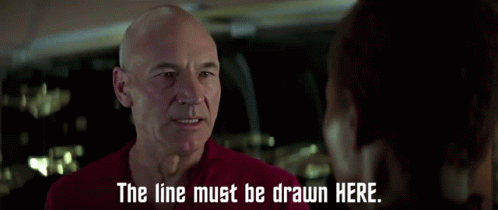When I’m hunting for new job roles, there are a few quick filters which I tend to apply, in order to reduce the number of adverts that I’m scouring through. Some of these are obvious - is the role predominantly remote (which is a requirement of mine)? Would I be joining a company which portrays the sense of a strong internal community? But there’s another less-concrete question which quite often streamlines the list: Is it a company that I would want to be seen to be working for?
Glassdoor has long been the go-to website for people looking for the inside scoop on a potential new employer, but often there’s a lot of white-noise: a small group of ex-employees who (rightly or wrongly) have left feeling embittered, balanced-out with a string of 5-star reviews in quick succession as HR asks people to counteract the negative rating by leaving a glowing score. All of which is to say, sometimes you might find yourself in an ethical conundrum after you’ve already joined a company.
My own ethical experiences
When I look back on my career to date, I can think of a couple of occasions where I didn’t consider ethical situations quickly enough - and a third where I certainly did.
My first experience came when I was working for a company which performed advanced document scanning and OCR capabilities. It was cutting-edge stuff, with machine learning and Bayesian classification subsumed into its system. However, despite naively thinking that I was building features with users (the end-users of the product) in mind, I’d completely missed another class of user: the many, many people whose jobs would be eradicated by our software. (It was designed to automate away many of the previously-manual jobs of a typical mailroom, such as automatically detecting/correcting poorly-completed forms, or classifying a document and routing it directly to the desk of the necessary individual.)
Not long afterwards, in another organisation, I found myself working on the worst user story that I ever implemented: An over-zealous salesperson had sold a lucrative ad placement on our website, to a company with a dubious track record (one of those “text for a free ringtone, but we’ll secretly bill you £5 a week” companies which plagued the world of ‘premium SMS’ in the late 00s). Specifically, they’d told the advertiser that we’d style the link so that it looked like part of our site navigation - thereby tricking our users into thinking that these spammers were part of our site.
In both cases, I stumbled on, figuring that I could balance my ethical concerns by at least doing my “best work”: I tested both products so damn well. (In the case of the ringtone company, the test cases which I ran on our site - resulting in click-throughs to their site - identified many bugs with their service which I’m sure, ironically, contributed to at least a few more suckers being signed-up.)
In my last ethical conundrum, however, not only had I learned from my mistakes, but the required decision was made almost in a heartbeat - there was no choice for me, other than the right choice. When my company shuttered the fully-remote team that I was working in, putting us technically at risk of redundancy, I was given two options: Firstly, I could take one of the many openings in their London office which was 200 miles away (a definite no), or I could keep my fully-remote role if I was willing to put my name forward for a job in another team - which somebody else was already doing. In essence, I’d have to fight another colleague to take their job, and I’d only get a redundancy payout if I lost that battle. While there was a fleeting temptation to deliberately throw such an interview, the only ethical decision for me was to resign, and to therefore miss out on a potentially lucrative payout.
Our ethics may differ
You might look at some of my examples above, and agree with them. Or you might think that I was crazy, and that I shouldn’t take things so personally. Ethics inherently belong to the self, with each of us holding our own philosophical standpoints. The most important thing is to recognise what is important for you - the line that you are not willing to cross.
If the line is something fundamental about the company, such as the market in which it’s operating, then it’s unlikely that you’re going to be able to personally reshape that company overnight; and if you’re already working for them, it’s okay to accept that this might result in your departure from the company. (After all, the alternative - which I’ve practiced above - is to bury your ethical concerns, which is unlikely to be good for your health in the long term.)
This persists when we’re looking for new roles, too. There are a wealth of exciting gaming and betting companies in the north-west of England, with exciting challenges, bright staff and cutting-edge tech stacks. But they’re not for me - I wouldn’t personally want to work for an organisation whose success hinges on hooking people’s addictive personalities.
Your line might be drawn elsewhere - maybe it’s a company’s lack of public diversity agenda, or the absence of any green credentials. Continuing the thread of yesterday’s post, if you find yourself dissuaded from a new role by such apparent minutiae, make sure you give your reasons to the hiring/HR people at that company - let them know that the public perception of their ethics is important to you, and soon the message will get through.
Key takeaways 📝
- We don’t all share the same ethical agenda - we have differing priorities.
- What’s important is to have an agenda - know what you are looking for, and what you seek to avoid.
- Don’t allow an ethical transgression to go unmentioned, or it may never be fixed.

